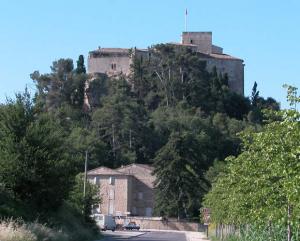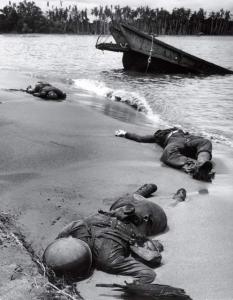ENYUMU-AMA 2
This is the part 2 of my story from the excerpt of my Book 'ENYUMU-AMA. Read about the Green family visiting of their ancestral country home. The sadness and joy and the dangers thy encountered;
ENYUMU-AMA 2
by DavidBokolo“That must be the boat,” Dad said, moving towards the near end of the jetty.
The boat slides to a stop, bumping against the old tires that were tied to the side on the concrete by the steps. It was a 90 Horsepower out boat engine driven fiber boat.
“Hello. Are you Johnny?” Dad shouted above the sound of the engine, moving down the steps, to take the tying rope from the boat.
“Sir, be careful, those steps are slippery,” the driver shouted out a warning and cut out the engine.
“Did you bring the materials I asked you to come along with?”
“YesSir. I hired the table and the four plastic chairs. I brought the cutlass from my house."
“Cutlass, Daddy, what are you going to use a cutlass for?” I asked, looking at my Mom who was busy helping Nengi to haul the bag toward the steps.
“Enyumu-ama has not been inhabited for quite some time now. We may need the cutlass to cut one or two things there,” she said throwing her handbag to me.
I knew she had told us about this village. It was her ancestral home where she grew up as a child before moving to Nembe where she lived with an aunt when she was to start her secondary school. She later went to Port Harcourt for her university education. She and Dad had met during their one year compulsory National Youth Service in Lagos where both of them had served.
Dad was from the popular Green family in Kalabari. Mom is so fond of her childhood years growing up in the village and had told us about it until I have also come to love the stories of that place.
I have a picture of the place engraved in my imagination to be a place where life had to be very interesting. I have tried to patch up all the pieces of the stories she had told us over the years and concluded that the people must have had a kind of a communal lifestyle.
That was a kind of life we could not find in cities like Lagos or Port Harcourt. The last time she was there was in 1998. Even then, she had lamented about the dilapidated state of the village. It had been eighteen years since she had stepped her foot into that country home.
“I wonder what the place would look like now,” she had said last night while we were having our late night dinner in the guest house.
“Mummy, you can’t develop cold feet now about going there. It is going to be a great experience for us; Nengi and me, to visit our ancestral home for the first time in our lives.
“I am not saying we should not go; I’m also looking forward to seeing it after all these years.”
“I would have loved to come with you the last time you were here. Though, I may not have understood much about it then.”
“You were just a baby at the time; you would not have had any recollection of the place.”
“But Daddy, you said that the waterways are not always safe these days with kidnapping and militancy are rife in the area,” Nengi had looked at Dad over the plate of food on the table.
“I will talk with the Manager to arrange for a boat discreetly, that we will take us to the village in the morning,” he smiled at her. “It does not mean that people are not going about their business because of the kidnapping and militancy; the place is not crawling with kidnappers.”
“Come on girls, get on board and let’s get going,” Dad’s voice cut through to my thoughts, bringing me back to reality.
“You will have to put on these life vests,” Johnny said, throwing some brownish looking yellow vests to us. He starts the engine and put it on a stern, slipping the boat away from the concrete and whirled it around, facing one of the smaller rivers opposite the jetty. The engine roared on a high pitch throwing up a high wave in its wake as the boat claws rapidly toward the entrance.
It was a very narrow creek; the boat was almost touching the outgrowth roots of the mangrove trees, splashing water at them.
Our initial attempt to talk to ourselves was swallowed up by the sound of the engine and we became silent while it roared on. Soon, we came out into a bigger creek, the sound of the engine echoing over the mangrove swamp, the water ahead of us lays flat and docile as a lifeless sheet.
The silence was echoing back to us the sound of the engine as if there were many others; I actually thought I heard the sound of another engine behind us. I was not convinced that the creeks are totally free of all militancy activities. I strained my ears to listen to the sound of another engine, looking furtively behind us, and the multitude of small creeks that crisscross the whole route.
The sharp smell of the bushes, of fruits and flowers which are just behind the mangrove swamp, pervades through the early morning haze into my nostrils; a beautiful aromatic smell. Now I am beginning to imagine the reason why Mom would not let go her childhood life of this place.
It was a short distance just about 10 minutes and we were already there. We have passed two other communities on our way and we came to an oil company installation. I turned to look at Mom and Dad at the seat behind us. They were both looking at the installation with surprise and amusement.
I pointed it to them and raised my eyebrow at the site. She merely shook her head.
The driver slowed down the engine and I looked at the bushes on both sides of the river. I can see the ruin of houses on our left-hand side like some desolated historical ancient city.
Mom was just shaking her head, her mouth hung open.
Jonny slowed the boat to a stop at a little clearing where someone has left a heap of planks, and cut off the engine. There was an instant eerie silence with only the sound of the engine still ringing in my ears.
“Girls, this is Enyumu-ama,” Dad said, trying to stand up by holding Mum’s shoulder for support.
“Daddy, there is no village here; there is just ruins and ruins,” Nengi grumbled, looking from one face to another.
More from DavidBokolo
The Weightless Weight
by DavidBokolo
Some times we got weight down by thoughts and imagination that do not have weight. the sooner we realize that, we'll be up and going. So says the old man
- Aug, 3 2015
- Lyric
"You Ripped my Love Into Shreds"
by DavidBokolo
Too much love of the cat, they say, kills the moth. Most love relationship got broken as a result of wrongly managed petty frail nerves. Like as I love to say, just musing.
- Sep, 11 2015
- Free Verse
Sing Me Another Love Song My Love
by DavidBokolo
I held on to my Love and refused to let Him go even when I feel him slipping away
- Sep, 15 2015
- Free Verse Lyric
"And Yet The battle Rages On"
by DavidBokolo
There are many unsung Heroes whose heroism is lost in time and space
- Sep, 23 2015
- Prose
I Wish I Could Rewind The Time
by DavidBokolo
I wish I had Known Him many years ago, It,s not too late now though, but I wish I could rewind the time
The One Who Bears My Burden
by DavidBokolo
In sequel to a previous poem, 'Sweet Memories Lingers', Good always sail over our pains if we take time to ponder.
- Aug, 27 2015
- Prose







